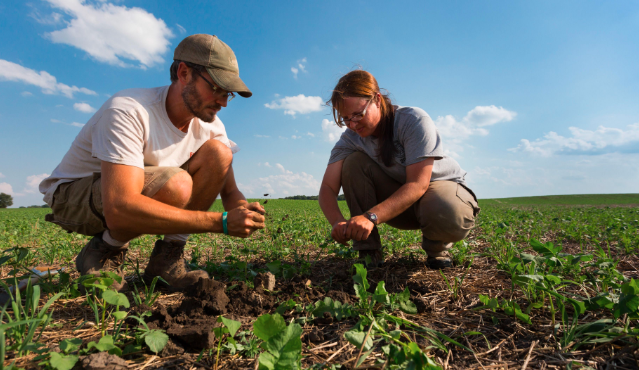Introduction
In an era where environmental conservation is critical, the agriculture industry must adopt sustainable practices to secure a future for both the planet and the growing global population. One company leading this charge is Valio Niketon, a pioneering name in sustainable agriculture. With its innovative solutions, Valio Niketon is setting a new benchmark for how farming should evolve in the 21st century. This comprehensive guide will explore what Valio Niketon is all about, its approach to sustainability, the benefits it brings to both farmers and consumers, and how it shapes the future of agriculture.
What is Valio Niketon?
Valio Niketon is a forward-thinking company committed to reshaping the landscape of agriculture through sustainable practices. Its focus is on reducing the environmental footprint of farming, boosting productivity, and ensuring that future generations can thrive. By leveraging modern technologies, data-driven insights, and renewable energy sources, Valio Niketon aims to transform farming into an eco-friendly and profitable venture.
Core Principles of Valio Niketon
Valio Niketon’s approach to agriculture is grounded in several key principles:
- Sustainability: Minimizing the environmental impact of farming practices.
- Innovation: Implementing cutting-edge technologies to enhance productivity.
- Resource Efficiency: Utilizing natural resources like water and soil in the most efficient way possible.
- Renewable Energy: Reducing dependency on fossil fuels by incorporating renewable energy solutions into farming operations.
- Community Engagement: Supporting local farmers and creating a sustainable ecosystem for communities.
The Importance of Sustainable Agriculture
Sustainable agriculture is not just an option; it’s a necessity in today’s world. With increasing concerns over climate change, soil degradation, water scarcity, and food security, the need for environmentally responsible farming practices has never been greater. Sustainable agriculture helps to maintain the health of our ecosystems while ensuring that food production can meet the growing demands of the global population.
Why Valio Niketon’s Sustainable Approach is Crucial
Valio Niketon’s sustainable farming practices address several critical environmental issues:
- Climate Change: By reducing carbon emissions and promoting the use of renewable energy, Valio Niketon helps mitigate the effects of climate change.
- Soil Degradation: Through practices like crop rotation, organic farming, and reduced pesticide usage, Valio Niketon ensures that soil health is preserved for future generations.
- Water Scarcity: Efficient irrigation systems and water conservation techniques are at the heart of Valio Niketon’s approach, ensuring that precious water resources are not wasted.
- Biodiversity Loss: Valio Niketon promotes biodiversity on farms, encouraging the growth of a variety of crops and supporting local wildlife.
Key Benefits of Sustainable Agriculture
Sustainable agriculture provides multiple advantages to both farmers and consumers, ensuring long-term benefits:
- Environmental Benefits:
- Reduced greenhouse gas emissions
- Conservation of water resources
- Preservation of soil quality
- Reduction in pesticide and chemical use
- Economic Benefits:
- Lower operational costs due to efficient resource use
- Increased productivity and yields
- Access to premium markets for organic and sustainably produced goods
- Social Benefits:
- Improved farmer livelihoods through better practices
- Promotion of healthy, locally produced food
- Stronger local economies and communities
Valio Niketon’s Sustainable Farming Practices
Valio Niketon’s approach to sustainable agriculture is built on innovation, resource efficiency, and a commitment to environmental stewardship. Below are some of the key practices employed by Valio Niketon to achieve sustainability in farming.
1. Resource-Efficient Farming
Valio Niketon focuses on maximizing the efficiency of natural resources used in farming, particularly water and soil. This is achieved through precision farming techniques that rely on data-driven insights to optimize resource use.
- Efficient Irrigation Systems: Valio Niketon uses smart irrigation systems that monitor soil moisture levels and only supply water when necessary, reducing water waste.
- Soil Health Management: Practices like crop rotation, composting, and minimal tillage are employed to maintain the health of the soil, ensuring long-term productivity.
Benefits of Resource-Efficient Farming
- Reduced water consumption
- Improved soil fertility
- Higher crop yields with lower input costs
2. Low-Emission Farming Techniques
A key component of Valio Niketon’s sustainability mission is reducing the carbon footprint of farming activities. Traditional farming practices often rely heavily on fossil fuels and contribute significantly to greenhouse gas emissions.
Valio Niketon counters this through the use of low-emission machinery, renewable energy sources, and advanced farming techniques that reduce the need for chemical inputs.
- Renewable Energy Integration: Solar panels, wind turbines, and bioenergy solutions are implemented across farms to minimize reliance on fossil fuels.
- Greenhouse Gas Reduction: By employing practices that reduce methane and nitrous oxide emissions, Valio Niketon contributes to a cleaner environment.
Types of Low-Emission Techniques
| Technique | Description |
| Solar Power | Solar panels installed on farms to harness sunlight for energy generation. |
| Wind Turbines | Wind turbines capture wind energy for electricity use on farms. |
| Bioenergy | Organic farm waste is converted into energy through bio-digestion processes. |
3. Promoting Biodiversity
Valio Niketon promotes biodiversity by encouraging farmers to grow a variety of crops, support local wildlife, and avoid monoculture practices that can lead to soil degradation and pest outbreaks.
- Crop Diversification: Growing multiple crops on the same land improves soil health and reduces the need for chemical inputs.
- Wildlife Conservation: Valio Niketon supports habitats for pollinators like bees, which are critical to the health of agricultural ecosystems.
4. Waste Management
Effective waste management is another critical area of focus for Valio Niketon. The company encourages the recycling of organic waste on farms and the use of composting to enrich soil. By turning organic waste into valuable resources, farmers can reduce their dependence on synthetic fertilizers and minimize pollution.
- Composting: Organic matter like crop residues and animal waste is composted to produce nutrient-rich soil.
- Waste Recycling: Organic waste is processed into bioenergy or used as natural fertilizers, promoting a circular economy.
Benefits of Sustainable Waste Management
- Reduced need for chemical fertilizers
- Lower methane emissions from organic waste decomposition
- Improved soil quality through compost use
5. Data-Driven Agriculture
Valio Niketon utilizes modern technologies, such as sensors, drones, and machine learning algorithms, to gather real-time data on farm conditions. This data allows farmers to make more informed decisions, optimizing resource use and improving crop yields.
Tools Used in Data-Driven Farming
- Soil Sensors: These sensors monitor soil moisture, nutrient levels, and temperature to guide irrigation and fertilization.
- Drones: Drones provide aerial views of crops, allowing farmers to assess plant health and detect issues early.
- Automated Machinery: GPS-guided tractors and harvesters ensure precise operations, reducing waste and boosting productivity.
Advantages of Data-Driven Agriculture
- Improved Efficiency: Farmers can reduce inputs like water and fertilizer while maintaining high yields.
- Precision Farming: Data allows for site-specific management, ensuring that each part of the farm gets exactly what it needs.
- Early Problem Detection: Technologies like drones can identify crop diseases or pest infestations before they become widespread.
The Future of Farming with Valio Niketon
Valio Niketon’s focus on innovation and sustainability positions the company as a leader in the future of agriculture. As the demand for food rises and environmental challenges increase, Valio Niketon’s solutions will become even more vital.
1. Vertical Farming
One of the most promising innovations in agriculture is vertical farming, where crops are grown in stacked layers, often in indoor environments. This method allows for year-round production in controlled conditions, reducing the need for pesticides and conserving space.
Advantages of Vertical Farming
- Requires significantly less land compared to traditional farming
- Reduces water use by up to 70% through recirculation systems
- Allows for controlled environments, resulting in consistent crop quality
2. Hydroponics and Aquaponics
Hydroponics involves growing plants without soil, using nutrient-rich water solutions instead. This method conserves water and reduces the need for large land areas. Similarly, aquaponics combines fish farming with hydroponic crop production, creating a sustainable ecosystem where waste from fish is used to nourish plants.
Benefits of Hydroponics and Aquaponics
- Significant water savings compared to soil-based farming
- Faster plant growth and higher yields
- Efficient use of space, especially in urban areas
3. Genetic Engineering
Valio Niketon is also at the forefront of genetic engineering in agriculture. By developing crops that are resistant to pests, diseases, and environmental stress, Valio Niketon is helping farmers reduce the need for chemical pesticides and increase their resilience to climate change.
Key Benefits of Genetic Engineering
- Reduced reliance on chemical inputs
- Increased crop resistance to drought, pests, and diseases
- Higher yields and improved food security
Future-Proofing Agriculture
Valio Niketon’s innovations are not just about solving the problems of today—they are about preparing for the challenges of tomorrow. As climate change intensifies and natural resources become scarcer, Valio Niketon’s solutions will be essential for ensuring global food security.
Conclusion
Valio Niketon is a trailblazer in the field of sustainable agriculture, offering innovative solutions that address the critical challenges facing modern farming. Through its focus on resource efficiency, biodiversity, waste management, and data-driven technologies, Valio Niketon is leading the way toward a future where agriculture is not only productive but also environmentally responsible. As we move forward, the company’s commitment to sustainability will ensure that farmers and consumers alike can benefit from a healthier planet and a more secure food system.
FAQs
What is Valio Niketon?
Valio Niketon is a company focused on sustainable agriculture, aiming to reduce environmental impacts and enhance farming efficiency through innovation and renewable energy.
How does Valio Niketon promote sustainability in farming?
Valio Niketon employs practices like resource-efficient farming, renewable energy integration, biodiversity promotion, and advanced waste management to make farming more sustainable.
What are the benefits of Valio Niketon’s farming methods?
Valio Niketon’s methods provide environmental benefits such as reduced emissions, economic savings through resource efficiency, and social improvements by supporting local communities.
How does Valio Niketon use technology in farming?
Valio Niketon uses data-driven technologies such as drones, soil sensors, and automated machinery to optimize farm productivity and resource management.
What role does renewable energy play in Valio Niketon’s operations?
Valio Niketon integrates renewable energy solutions like solar power, wind turbines, and bioenergy to reduce reliance on fossil fuels and lower carbon emissions.
How does Valio Niketon support biodiversity?
Valio Niketon promotes biodiversity by encouraging crop diversification, reducing monoculture, and creating habitats for pollinators and local wildlife.





